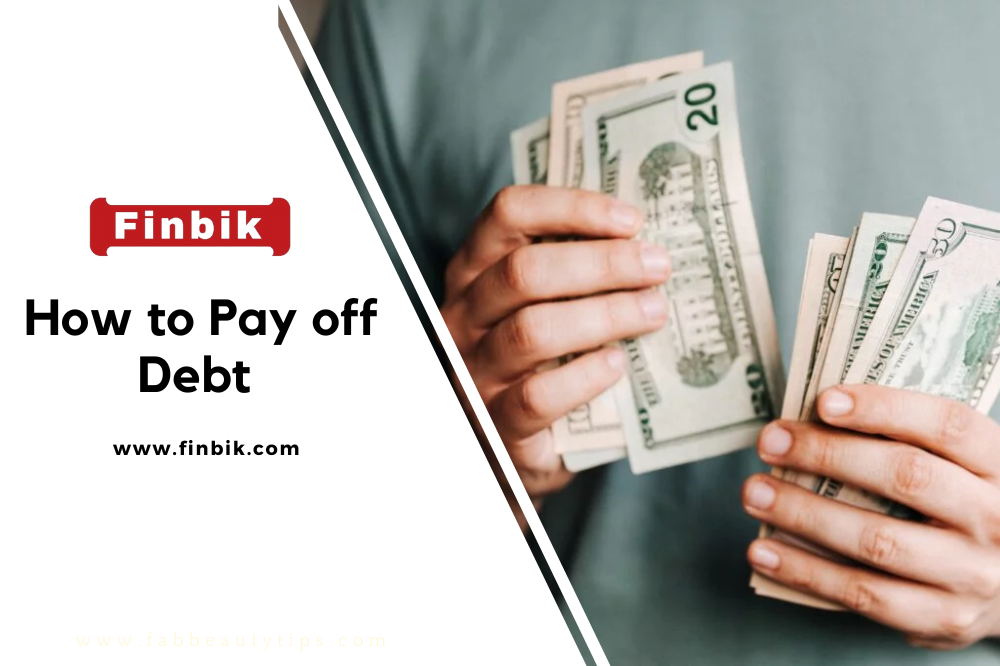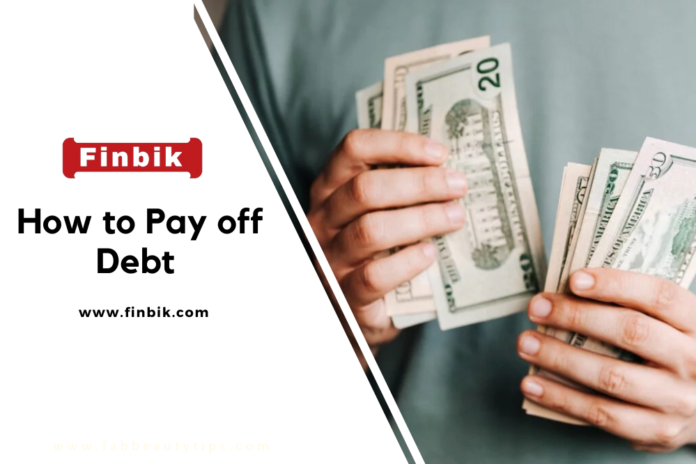Do you have trouble with debts and require remedies? The idea of clearing debts is mind-boggling but achievable if one follows the right approach. This essay will look into ways through which you can pay up your debts and regain yourself financially. Pay your debts earlier to have a new beginning. It is important to realize that paying debts is not easy, it requires time and commitment nevertheless the advantages accrued are immense. Pay off debt as it decreases anxiety levels boosts credit rating and also encourages saving. I would say this because as we look at them separately each separately seems self-explanatory. That is why we have decided to take a closer look at these steps۔

How to pay off debt in 10 steps
1. Face Your Debt
Acknowledge your debt first and appreciate the seriousness of the circumstances. Your list of debts should include verification of the outstanding balance, interest rates, and required minimum payments. Moreover, determine the obligations that have the predominant interests and give them priority. Do not hide from your debt, but be yourself above everything else.
2. Create a Budget
Also, create a budget that suits your income and take care to keep it realistic. Work out your income and spending then allocate as much as possible to debt reduction. Most importantly, reduce unnecessary expenses to have enough for your debts. For example, try cooking at home rather than going out to eat then use the difference in cost for debt repayment.
3. Prioritize High-Interest Debts
Another important point you should concentrate on is erasing high-interest debts at first. They are the most costly debts in your pocket in terms of interest hence need to be done away with as soon as possible. One has to choose either the snowball or the avalanche method for ranking debts based on priority. All in all; never fail to pay at least the minimum requirement for any debt lest it leads to additional charges such as fines for lateness.
4. Pay More Than the Minimum
When you decide to make only the minimum payments, it can be tantamount to prolonging the process of clearing your debts and therefore you end up paying more in terms of interest rates so always strive to pay more on any of your obligations than what is provided for by the agreements between you and your creditors.
5. Consider Debt Consolidation
In addition, gives the idea of taking all those multiple debts with high interest rates and merging them under just one loan at a lesser interest rate. Doing this will make it easy for you to pay all at once plus you will spend less interest. Nonetheless, consolidation loans should always be looked out for, as they may carry covert charges or take additional time before they are cleared out completely.
6. Cut Expenses and Increase Income
To allocate your income to necessities, spend money on your discretion, and savings, and utilize the 50/30/20 principle more than anything else. To free up extra money for debt payments think of selling items that are no longer needed. Also, taking up extra work, or requesting a raise at your workplace, and most paramount is minimizing your expenditure while increasing your revenue.
7. Use the Snowball Method
One example is where you can start paying off your smallest debts using a snowball method as you continue to pay minimum money on bigger ones. With this method, you will be able to see results sooner since there will only remain less money to clear. Additionally, apply that same snowball method if there are loans with closely related rates among them because it means they will all go together.
8. Negotiate with Creditors
Later, when financial creditors responsible for lending agree to reduce interest rates or lower than usual payment for a short period, contact them. To pay off debt, and do this effectively, you need to inform them about your economic state. Inform with specific data as evidence to back up what is said orally. Remember, during these transactions, politeness is paramount.
9. Consider a Balance Transfer
You might want to think about shifting that high-interest debt onto a credit card or loan with lower interest rates as well. It will save you some interesting cash charges as well as make it easier for you to finish paying the principal balance sooner. Paying off debt is a challenging task; however, an individual can accomplish it with persistence and knowing what to do.
10. Stay Disciplined and Patient
Getting rid of debt takes time as well as discipline however the advantages are priceless stay focused on your goals. Don’t incur any more money during this payment period most significantly celebrating your progress is key in making sure that you never get bored as you struggle towards becoming financially liberated. Payoff all your debts then come up with another beginning.
Conclusion
Pay off debt is a challenging task; however, an individual can accomplish it with persistence and knowing what to do. Remember that you need both courage to confront it as well as courage to make plans about how you will get rid of it. Prioritize creating your budget before focusing on high-interest loans. Never concentrate on the amount you make in a month while planning how much debt should be cleared. Instead, put all those things into figures.
Pay sometimes twice or thrice what you need to service your card every month to avoid spending many years settling one card after another owing to various causes but mainly to improve our scores from the bureaus hence borrowing at cheaper rates than before. Follow these 10 ways to regain freedom by getting out from under debt.
Articles You May Like
Good Debt vs. Bad Debt, What’s the difference?

